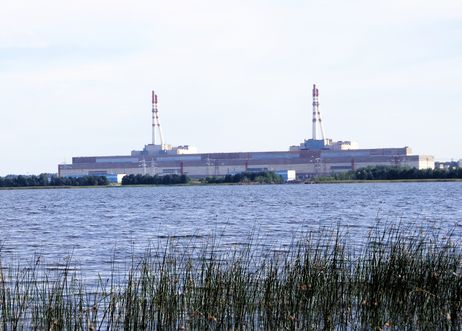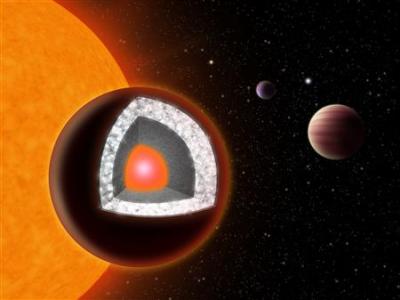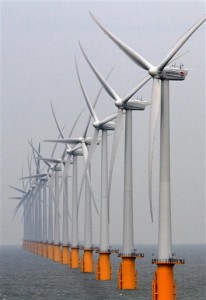 Lithuanians rejected a plan to build a nuclear plant to cut dependence on imports of Russian energy, in a non-binding referendum that does not kill off the project but leaves a question mark over its future.
Lithuanians rejected a plan to build a nuclear plant to cut dependence on imports of Russian energy, in a non-binding referendum that does not kill off the project but leaves a question mark over its future.
Support for the plant in Lithuania, one of the European Union states most dependent on imported energy, waned after the Fukushima nuclear disaster in Japan last year.
With results counted from all but a handful of Lithuania’s districts after Sunday’s referendum, 62.74 percent voted “No”, while 34.01 percent were in favor.
Turnout was about 52 percent, just over the threshold to make the referendum valid.
Lithuanian’s Baltic neighbors Estonia and Lithuania, whose energy firms were expected to help finance the power plant, said they were still interested but that the referendum would make it harder to get the project off the ground.
The referendum on Sunday was consultative, so Lithuania’s leaders are not obliged to scrap the power plant. The vote was held alongside a parliamentary election which is likely to hand power to an opposition coalition.
Japanese-U.S. joint venture Hitachi-GE Nuclear Energy was lined up to build the plant.
“NO HURRIED DECISIONS”
Leaders of the two opposition parties which did best in the election said the project could not go ahead in the form it is in now, but did not rule out proceeding once they had more information, especially about financing.
“We are not anti-nuclear power. We are against this project which was given to parliament for discussion very late before the election,” said Algirdas Butkevicius, head of the second-placed Social Democrat party.
“We are rational people. We will talk. We will not take any hurried decisions.”
Andres Tropp, of Estonian energy firm Eesti Energia, said in a statement sent to Reuters that it was up to the new government in Lithuania whether it goes ahead with the project.
“As far as Eesti Energia is concerned then it is obvious that the risks related to execution of the project have raised significantly and we shall definitely take it into account,” Tropp said.
The office of the Latvian prime minister’s office noted in a statement that the vote was not binding, but said: “At this moment we can predict it would make the progress of the … project more difficult.”
The Lithuanian government that was voted out in Sunday’s election had proposed building the new plant on the site of the Soviet-built Ignalina plant in eastern Lithuania, that was shut in 2009.
Lithuania’s finance ministry projects the total cost of building the plant at 6.8 billion euros. It says 4 billion euros would come from loans, and the rest would be put up by the contractor and energy firms in the Baltic states.
A spokesman for Hitachi, Terry Kubo, told Reuters the firm expected more debate on the plant in Lithuania and was ready to provide the new government which all necessary information.
“Hitachi remains committed to contributing to the energy security of Lithuania with our technology, in response to its request,” Kubo said.
Source : Reuters




































